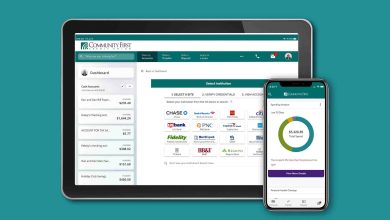Top Financial Management Strategies For Small Businesses

No business owner enjoys being financially strapped, yet cash flow mismanagement occurs more often. Nearly 82% of small businesses fail due to poor cash flow management and understanding of cash flow.
The most crucial step for any small business owner is to educate themselves regarding financial management. Small company owners may build a secure financial future and prevent failure by learning the fundamental skills required to manage a small business, such as simple accounting duties, asking for a loan, and producing financial statements. Staying organized, in addition to knowledge, is an integral part of good money management.
What Role Does Financial Management Play In Small Businesses?
Keeping track of your finances involves far more than just putting numbers into a spreadsheet. Whether you’re trying to salvage a sinking ship or fuel the expansion of a rising firm, sound financial management necessitates proactive planning for your organization’s long-term prosperity.
Setting clear budget maximization, cash flow, and risk management goals, targets, and KPIs will help you build a strong financial foundation.
Check out some of the top financial management strategies that’ll help you keep track of your small company earnings.
-
Monitor Business Expenditures
Are you aware of how much money you spend on a daily, weekly, or monthly basis? If you don’t record your expenses, you can find yourself with underlying payments you don’t need. In addition, neglecting to keep track of spending can lead to overspending and financial mismanagement.
Manage your business finances through a smart money tracker to keep track of your costs. Accounting transactions may be recorded using essential financial planning software. You can readily track your spending if you keep track of your expenses.
-
Keep Track Of Deadlines
Failure to remember when invoices are due can result in late penalties or interest, as well as damage to your company credit and strained relationships with lenders and vendors.
To avoid falling behind on payments, keep track of when they’re due and create reminders. Begin utilizing a debt repayment tracker to establish a regular payment plan.
-
Plan A Budget
Taking the effort to design and maintain a small company budget will help you manage your finances more effectively. Budgets assist you in determining your expenditure and income targets.
Your budget spells out all of the costs associated with running your company. You can better manage your spending by incorporating a budget builder tool to know how much you can spend.
A budget also predicts the amount of money your company will make. If your revenue is smaller than expected, look for strategies to reduce expenditures while increasing revenue.
In Conclusion
Successful financial management is a continual effort. As a small business owner, your company objectives should be SMART. Make sure to set up annual, six-monthly, and monthly budgets and targets to manage your finances. When implemented correctly, these tactics will improve performance and demonstrate to customers and staff that you care about their well-being.
If you are a company looking for efficient strategies to manage your finances, contact My EasyFi today and access world-class financial solutions!




